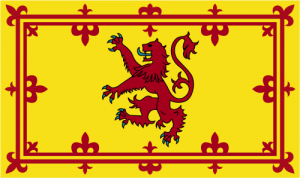An Act of Secession
 Despite Scotland and England’s 300 years of shared history, and of the economic ties either side of their border, dissatisfaction has grown in the north.
Despite Scotland and England’s 300 years of shared history, and of the economic ties either side of their border, dissatisfaction has grown in the north.
Firstly, there is the persistent half-life of historical folk memory – what was done to us years ago should be remembered by the present generation, lest it is done again. Many Scots still remember the effects of the Highland Clearances of the 18th and 19th centuries; vast tracts of land forcibly cleared of tenant farmers by absentee landlords, the farm workers replaced, the migration of the rural population to the sea coasts and to Australia and New Zealand. In the Highlands and Islands these distant events are remembered in much the same way as the people of the Irish Republic remember Cromwell and the Irish Potato Famine. Glaswegians remember British tanks on the streets in 1919, brought in to put down working class protests at low wages, long hours and high rents.
But Scotland also has more pressing and contemporary concerns. There has always been tension between Edinburgh and Westminster. This has been exacerbated by the discovery of North Sea oil and gas. Which country has gained most from this bonanza, Scotland or England? Many Scots have no doubt of the answer, and as more oil is discovered off the Scottish coast, many of them also consider it is time for Scotland alone to reap the profits. A further problem is the allocation of investment funds in high-tech industries north and south of the border. Scotland sees itself as having the potential for rapid growth, but not enough capital flows from the English Treasury for the Scottish industries to reach their full potential. There is no unemployment problem in Aberdeen, home of Scotland’s new found prosperity. Scots consider they could outstrip English industrial growth if they were free to do so and were not hampered by Westminster.
Scottish and English politics have also experienced a shift in recent years. The Conservative vote has collapsed in Scotland. In England, the Conservative and Unionist Party remains one of the two main parties at Westminster. In Scotland, Labour and the Scottish Nationalists dominate the Assembly. Both countries have very different attitudes to welfare provision, education, the NHS and the place of the public sector in the economic life of the state. Michael Farrage has no remit in Scotland.
In Britain, David Cameron has opened the back door to an exit from Europe. Though Scottish politicians are enthusiastic supporters of the EU, entry of an independent Scotland into the Union may be doubtful. This has less to do with Scottish viability as an independent state and all to do with Spanish fears of an independent Catalonia applying to join the EU in opposition to the wishes of the Spanish government in Madrid.
Supporters of an independent Scotland see a myriad of economic opportunities; far closer ties with the Scandinavian economies, a loose federation with Ireland and Iceland, maybe a flow of inward investment from abroad if England leaves the EU, and a belittling of England’s standing in world affairs to their national advantage.
The politician’s of both countries should curb their overblown rhetoric over the coming months. The law of hidden consequences usually bites deep and hard.